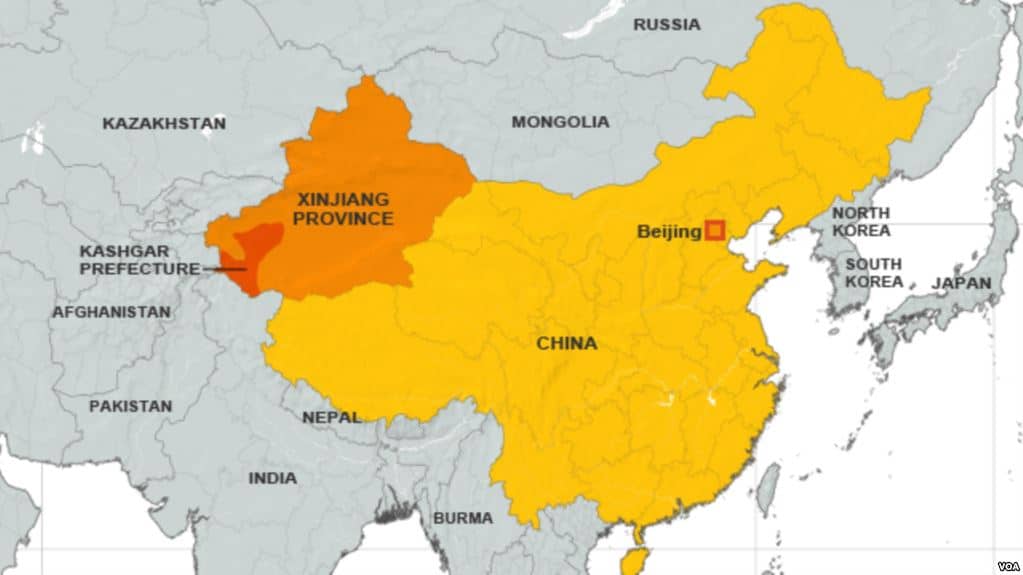Xinjiang is autonomous region in the northwestern of China, established in 1955. The total area of Xinjiang accounts for one-sixth of China’s land area.
The population of Xinjiang is dominated by Uyghur’s. After Islam was introduced into the region from the 10th century, it gradually formed one of the foundations of the Uyghur “common psychology”. It constituted the Uyghur consciousness and it has been internalized into the spirit of national culture. It has become a spiritual bond of national and national integration with the same religious beliefs. Currently, about 60% of the province’s population believes in Islam.
Religion unites Xinjiang and also divides it
On the other hand, the difference in religious beliefs has become one of the reasons for ethnic conflicts and national divisions.
Historically, the Xinjiang regime has been independent or in conflict with China. The disparity between nationality, culture, and religion has hidden the dangers of a fierce confrontation between the two. Since 1950, a large number of Han populations has immigrate into Xinjiang, encouraged by the Chinese Communist Party. Meanwhile, the Xinjiang independence movement has been intensified and continues to the present day.
Xinjiang is located in Central Asia, in the borders of eight countries. Among them Kazakhstan, Kyrgyzstan, Tajikistan, Afghanistan, Pakistan and India, that are also deeply influenced by Islam.  Although Turkey is not it is not a neighboring country, Xinjiang is close with it for both common ethnicity, language, and religion. Therefore, the sphere of influence of Islam in the world, from North Africa to West Asia, has been extending eastward to Malaysia and Indonesia, forming an east-west religious tie.
Although Turkey is not it is not a neighboring country, Xinjiang is close with it for both common ethnicity, language, and religion. Therefore, the sphere of influence of Islam in the world, from North Africa to West Asia, has been extending eastward to Malaysia and Indonesia, forming an east-west religious tie.
So, Xinjiang is in an international geopolitical environment. Islam not only become the spiritual support of the Xinjiang independence movement, but also the link connecting it with different nationalities and boundaries.
Therefore in Xinjiang, conflicts are raised not only from political and economic interests, such as territorial sovereignty, economic claims, historical contrast. Also religion provides a sacred aura, fanaticism and passion in the real struggles. Religion is often the most convenient and effective means for mobilizing and organizing people.
Because of this, despite criticism and pressure from the international community, the Chinese regime is implementing in Xinjiang imprisonment of Chinese Muslims and other ethnic religious minorities. For China, Xinjiang, which links Tibet, forms an effective and complete defense line against India. And a key strategic area in the geopolitical competition in Central Asia and Middle East.
So, Xinjiang has been placed in a religious geopolitical risk zone, making Xinjiang and even China, a hot spot for international religious conflicts.
Image Credit: Flickr







